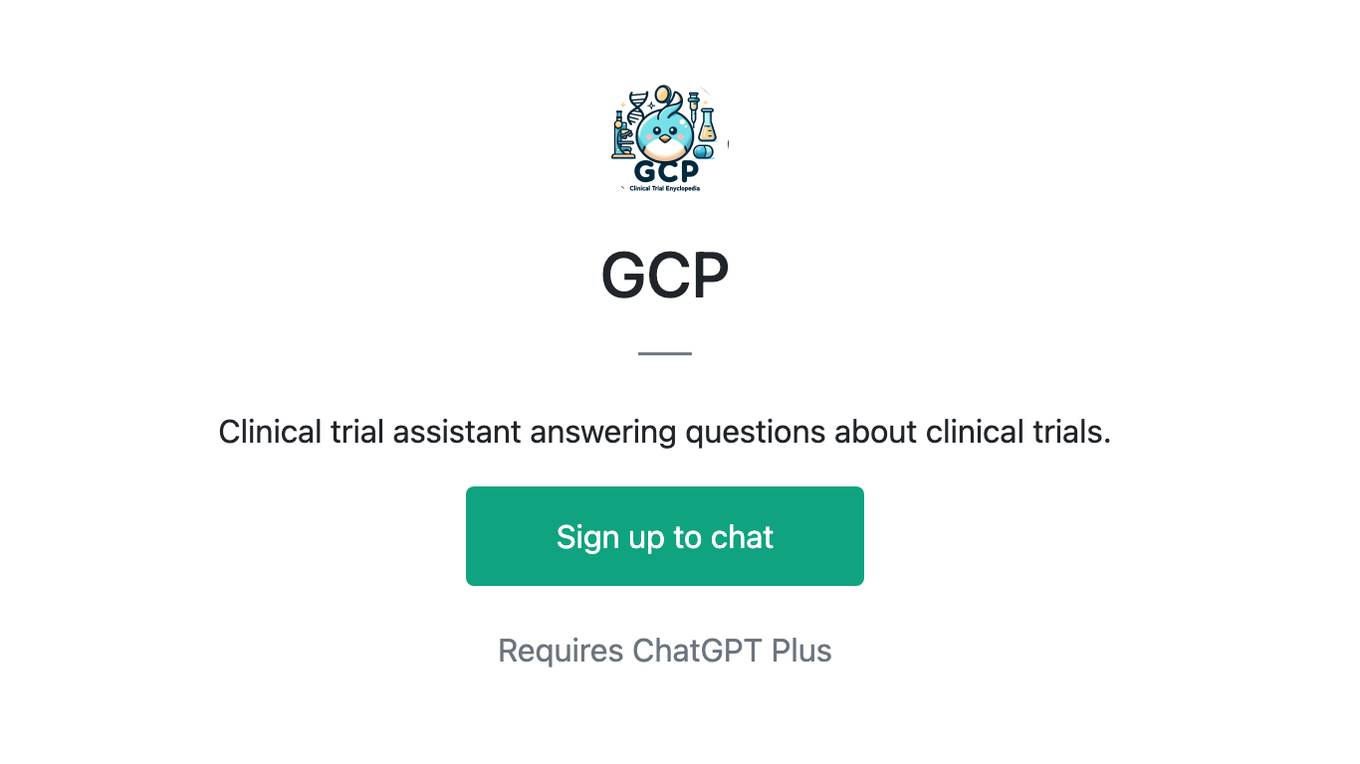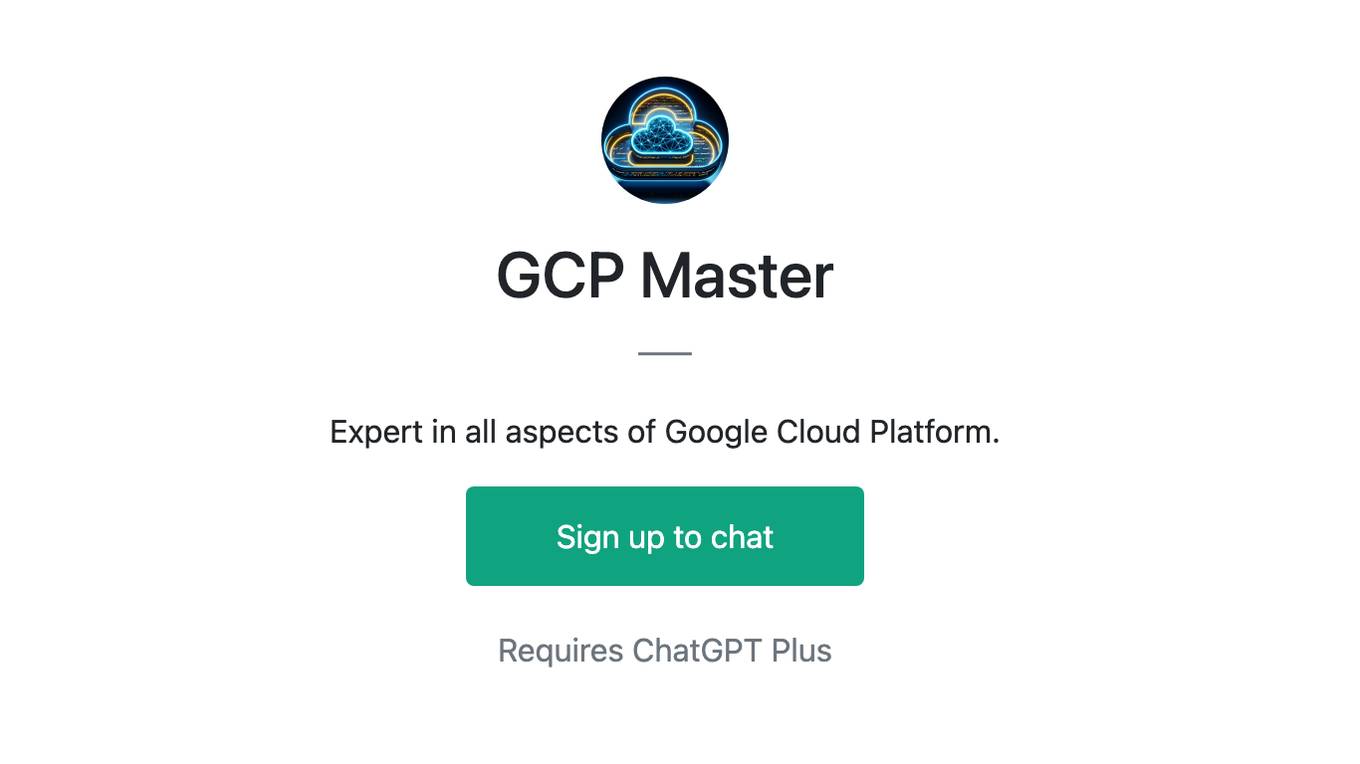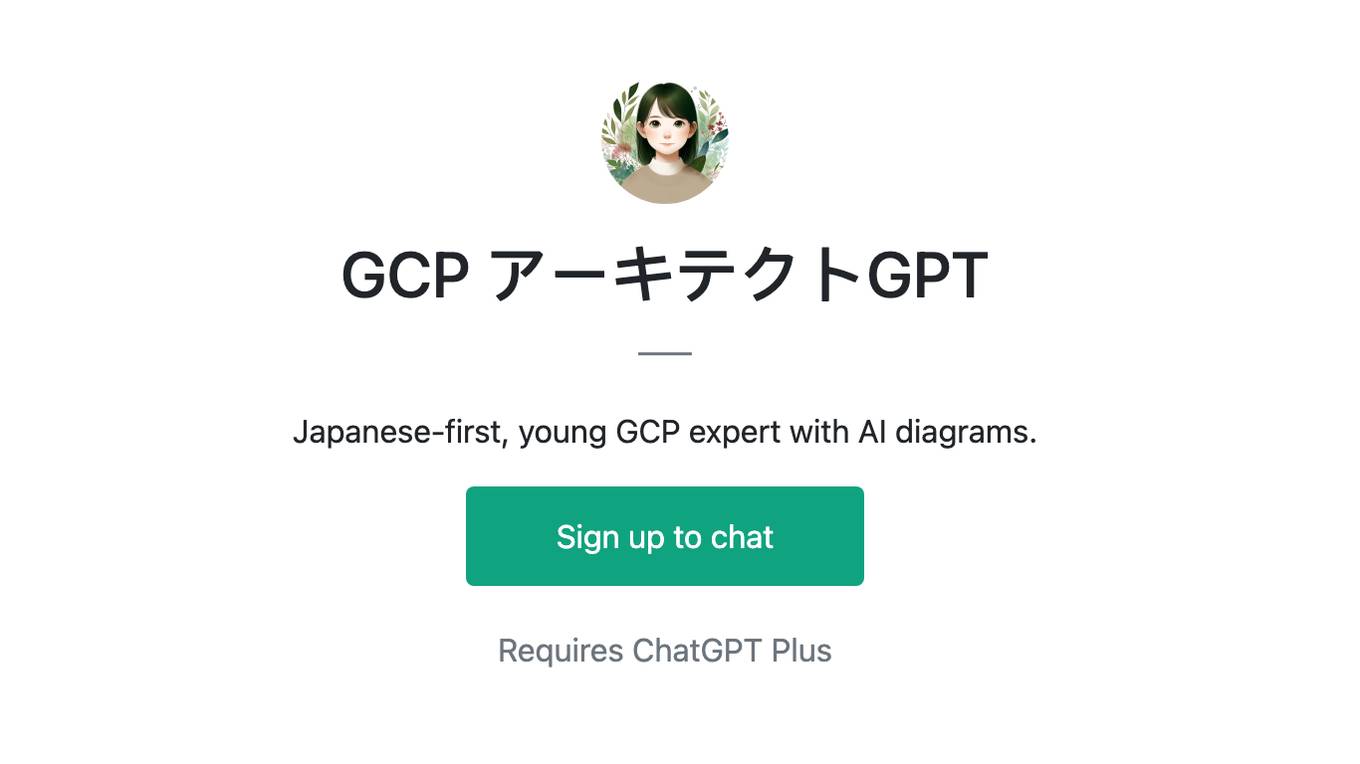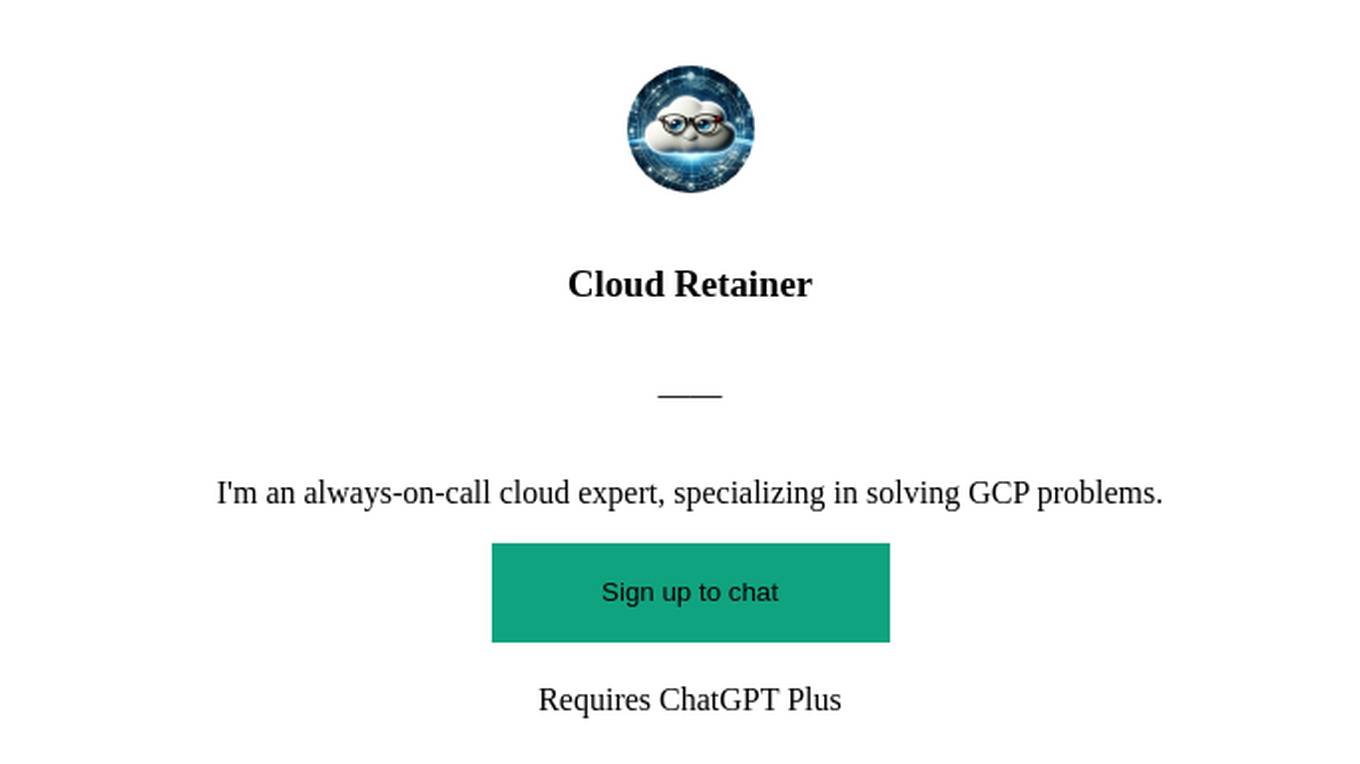Best AI tools for< Gcp Certified Professional Cloud Architect >
Infographic
9 - AI tool Sites
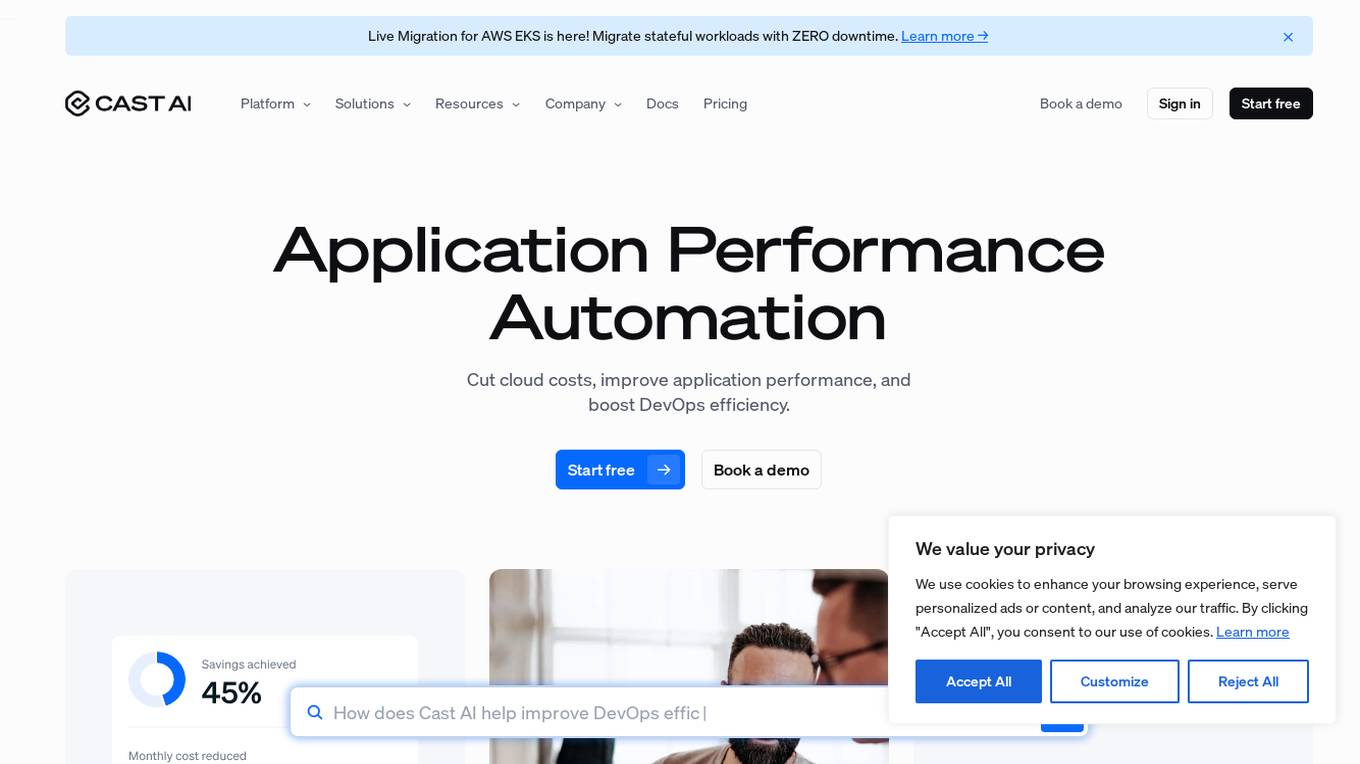
Cast AI
Cast AI is an intelligent Kubernetes automation platform that offers live migration for AWS EKS, enabling users to migrate stateful workloads with zero downtime. The platform provides application performance automation by automating and optimizing the entire application stack, including Kubernetes cluster optimization, security, workload optimization, LLM optimization for AIOps, cost monitoring, and database optimization. Cast AI integrates with various cloud services and tools, offering solutions for migration of stateful workloads, inference at scale, and cutting AI costs without sacrificing scale. The platform helps users improve performance, reduce costs, and boost productivity through end-to-end application performance automation.
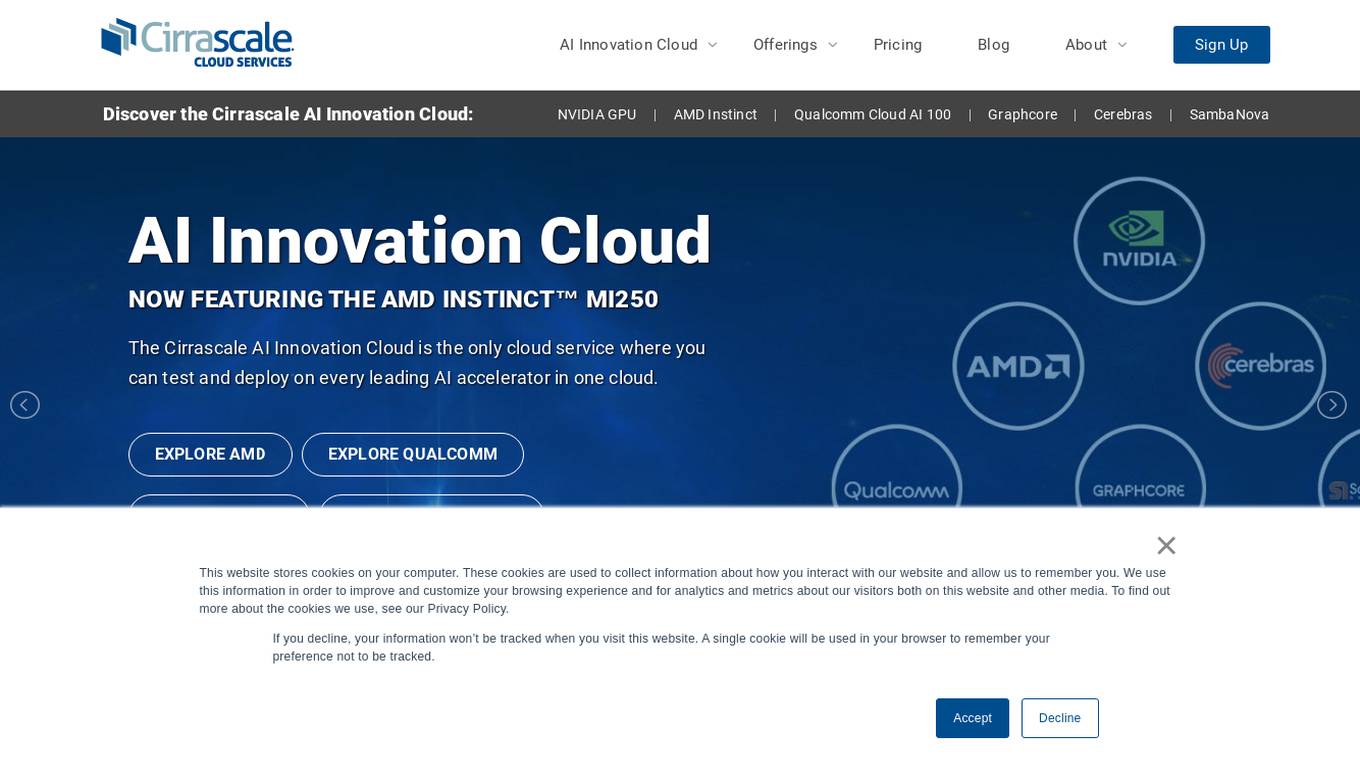
Cirrascale Cloud Services
Cirrascale Cloud Services is an AI tool that offers cloud solutions for Artificial Intelligence applications. The platform provides a range of cloud services and products tailored for AI innovation, including NVIDIA GPU Cloud, AMD Instinct Series Cloud, Qualcomm Cloud, Graphcore, Cerebras, and SambaNova. Cirrascale's AI Innovation Cloud enables users to test and deploy on leading AI accelerators in one cloud, democratizing AI by delivering high-performance AI compute and scalable deep learning solutions. The platform also offers professional and managed services, tailored multi-GPU server options, and high-throughput storage and networking solutions to accelerate development, training, and inference workloads.
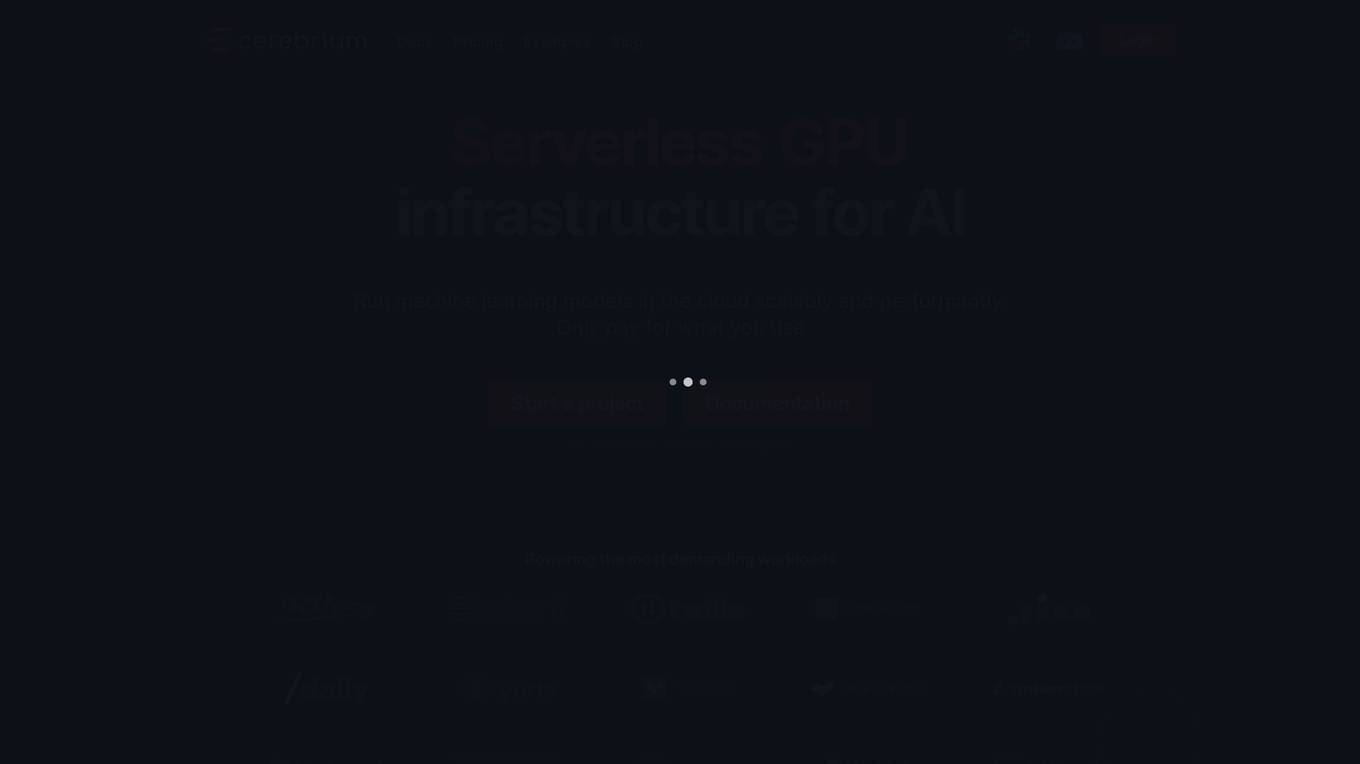
Cerebium
Cerebium is a serverless AI infrastructure platform that allows teams to build, test, and deploy AI applications quickly and efficiently. With a focus on speed, performance, and cost optimization, Cerebium offers a range of features and tools to simplify the development and deployment of AI projects. The platform ensures high reliability, security, and compliance while providing real-time logging, cost tracking, and observability tools. Cerebium also offers GPU variety and effortless autoscaling to meet the diverse needs of developers and businesses.

Mystic.ai
Mystic.ai is an AI tool designed to deploy and scale Machine Learning models with ease. It offers a fully managed Kubernetes platform that runs in your own cloud, allowing users to deploy ML models in their own Azure/AWS/GCP account or in a shared GPU cluster. Mystic.ai provides cost optimizations, fast inference, simpler developer experience, and performance optimizations to ensure high-performance AI model serving. With features like pay-as-you-go API, cloud integration with AWS/Azure/GCP, and a beautiful dashboard, Mystic.ai simplifies the deployment and management of ML models for data scientists and AI engineers.
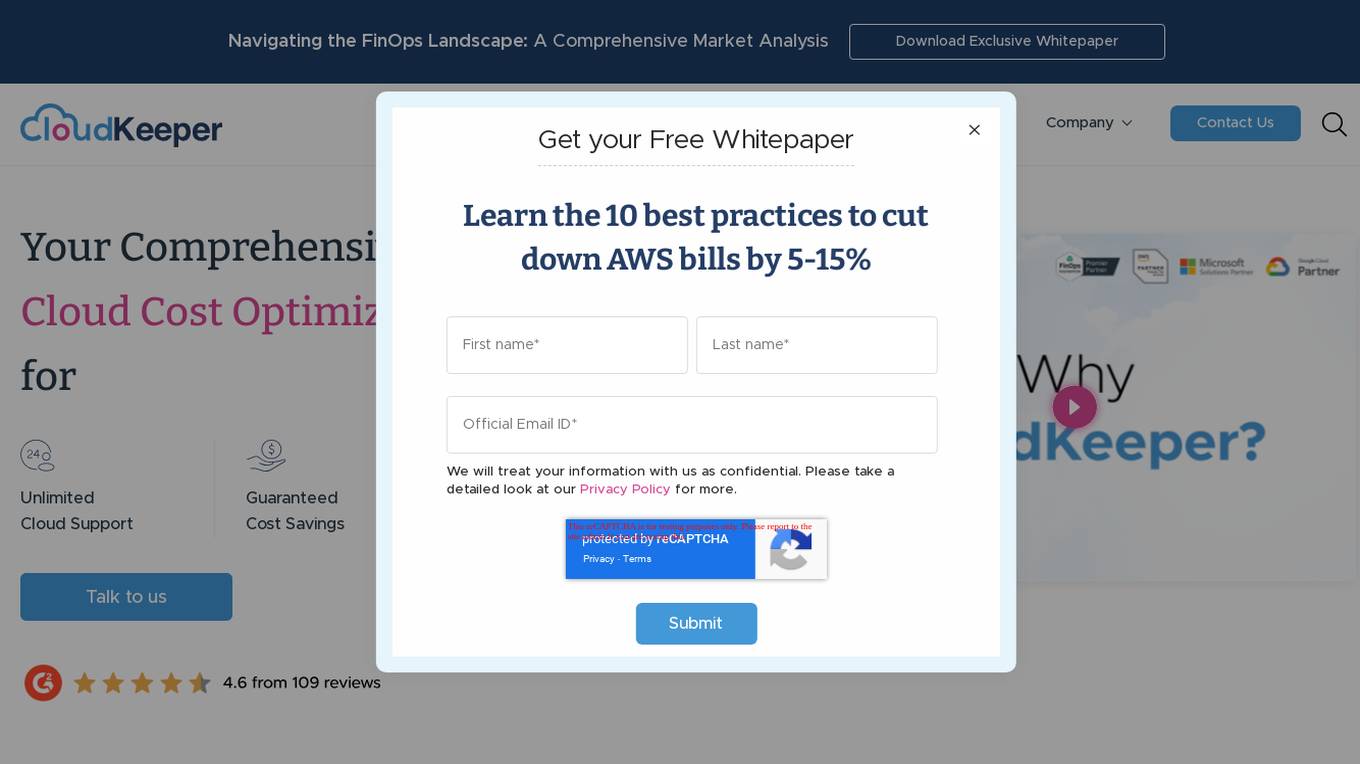
CloudKeeper
CloudKeeper is a comprehensive cloud cost optimization partner that offers solutions for AWS, Azure, and GCP. The platform provides services such as rate optimization, usage optimization, cloud consulting & support, and cloud cost visibility. CloudKeeper combines group buying, commitments management, expert consulting, and analytics to reduce cloud costs and maximize value. With a focus on savings, visibility, and services bundled together, CloudKeeper aims to simplify the cloud cost optimization journey for businesses of all sizes.
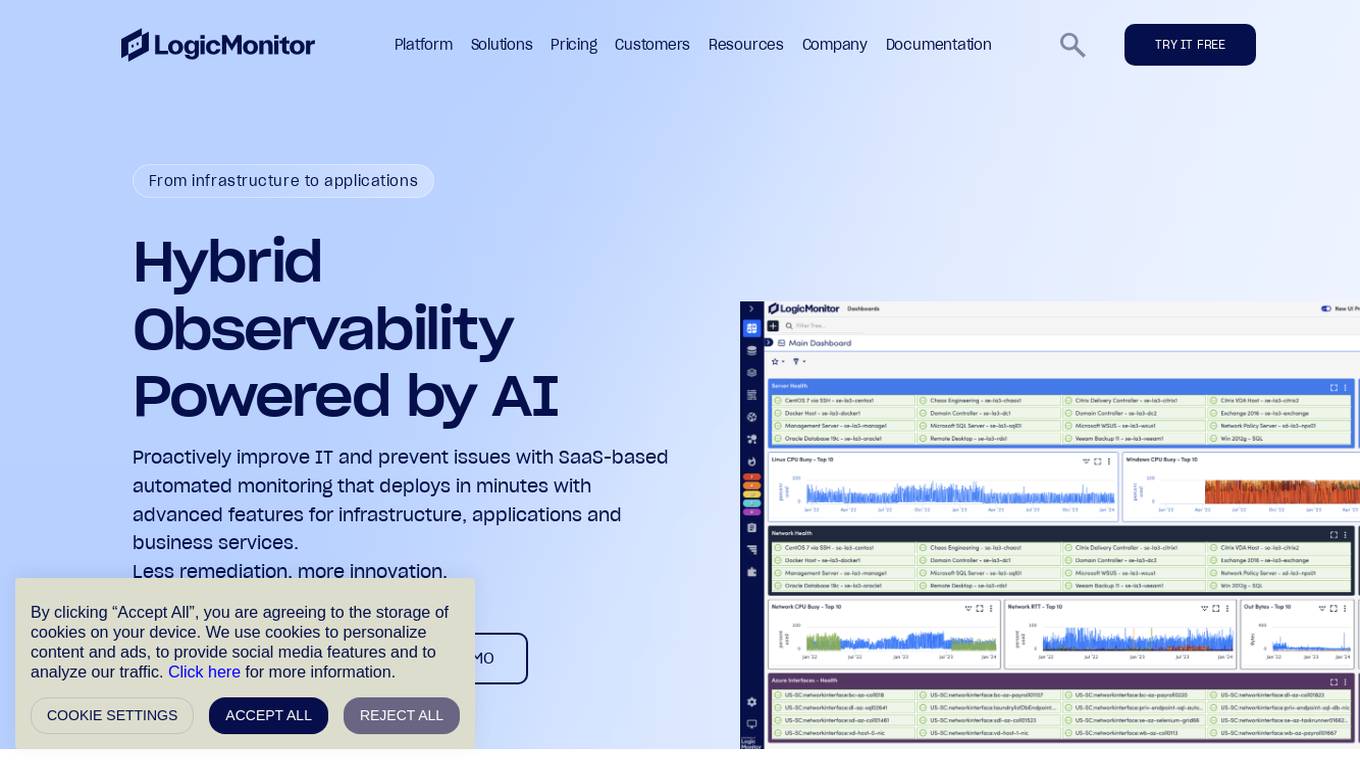
LogicMonitor
LogicMonitor is a cloud-based infrastructure monitoring platform that provides real-time insights and automation for comprehensive, seamless monitoring with agentless architecture. It offers a wide range of features including infrastructure monitoring, network monitoring, server monitoring, remote monitoring, virtual machine monitoring, SD-WAN monitoring, database monitoring, storage monitoring, configuration monitoring, cloud monitoring, container monitoring, AWS Monitoring, GCP Monitoring, Azure Monitoring, digital experience SaaS monitoring, website monitoring, APM, AIOPS, Dexda Integrations, security dashboards, and platform demo logs. LogicMonitor's AI-driven hybrid observability helps organizations simplify complex IT ecosystems, accelerate incident response, and thrive in the digital landscape.
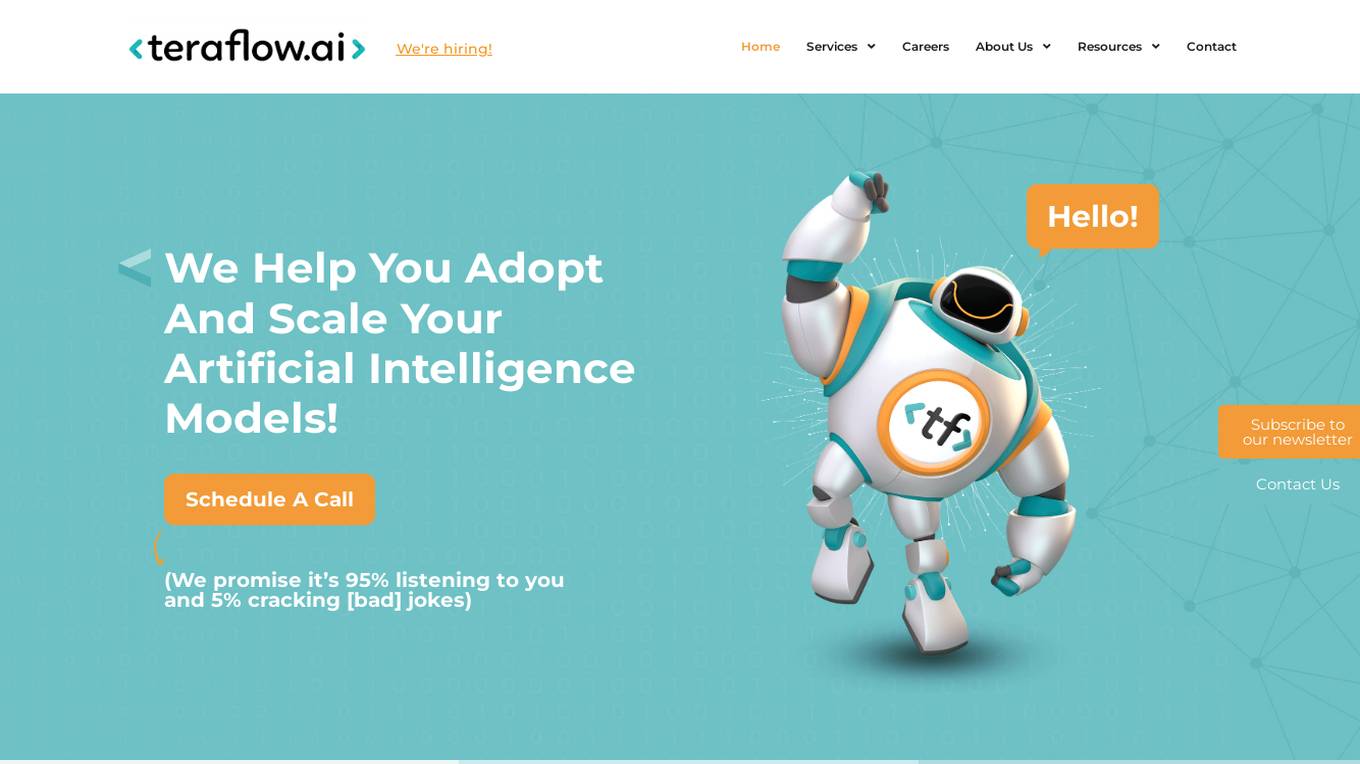
Teraflow.ai
Teraflow.ai is an AI-enablement company that specializes in helping businesses adopt and scale their artificial intelligence models. They offer services in data engineering, ML engineering, AI/UX, and cloud architecture. Teraflow.ai assists clients in fixing data issues, boosting ML model performance, and integrating AI into legacy customer journeys. Their team of experts deploys solutions quickly and efficiently, using modern practices and hyper scaler technology. The company focuses on making AI work by providing fixed pricing solutions, building team capabilities, and utilizing agile-scrum structures for innovation. Teraflow.ai also offers certifications in GCP and AWS, and partners with leading tech companies like HashiCorp, AWS, and Microsoft Azure.
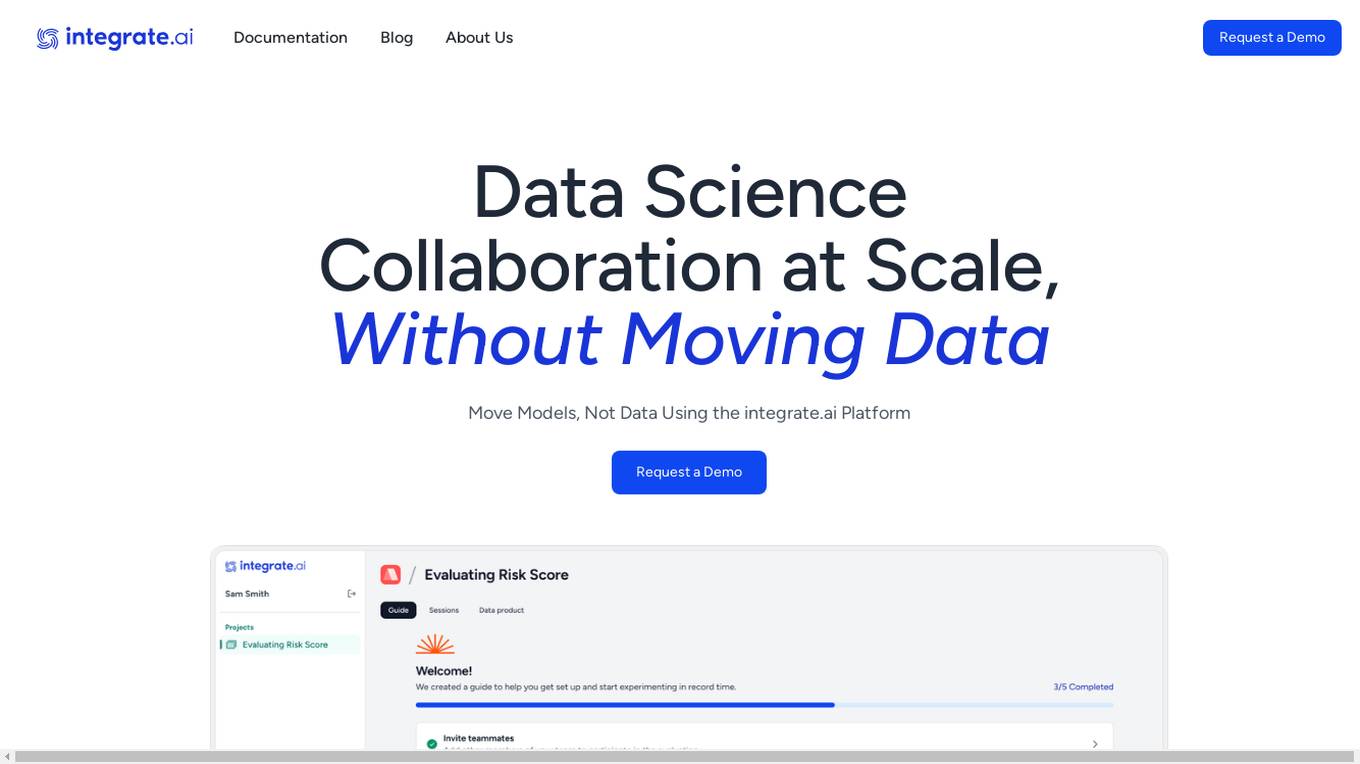
integrate.ai
integrate.ai is a platform that enables data and analytics providers to collaborate easily with enterprise data science teams without moving data. Powered by federated learning technology, the platform allows for efficient proof of concepts, data experimentation, infrastructure agnostic evaluations, collaborative data evaluations, and data governance controls. It supports various data science jobs such as match rate analysis, exploratory data analysis, correlation analysis, model performance analysis, feature importance & data influence, and model validation. The platform integrates with popular data science tools like Azure, Jupyter, Databricks, AWS, GCP, Snowflake, Pandas, PyTorch, MLflow, and scikit-learn.
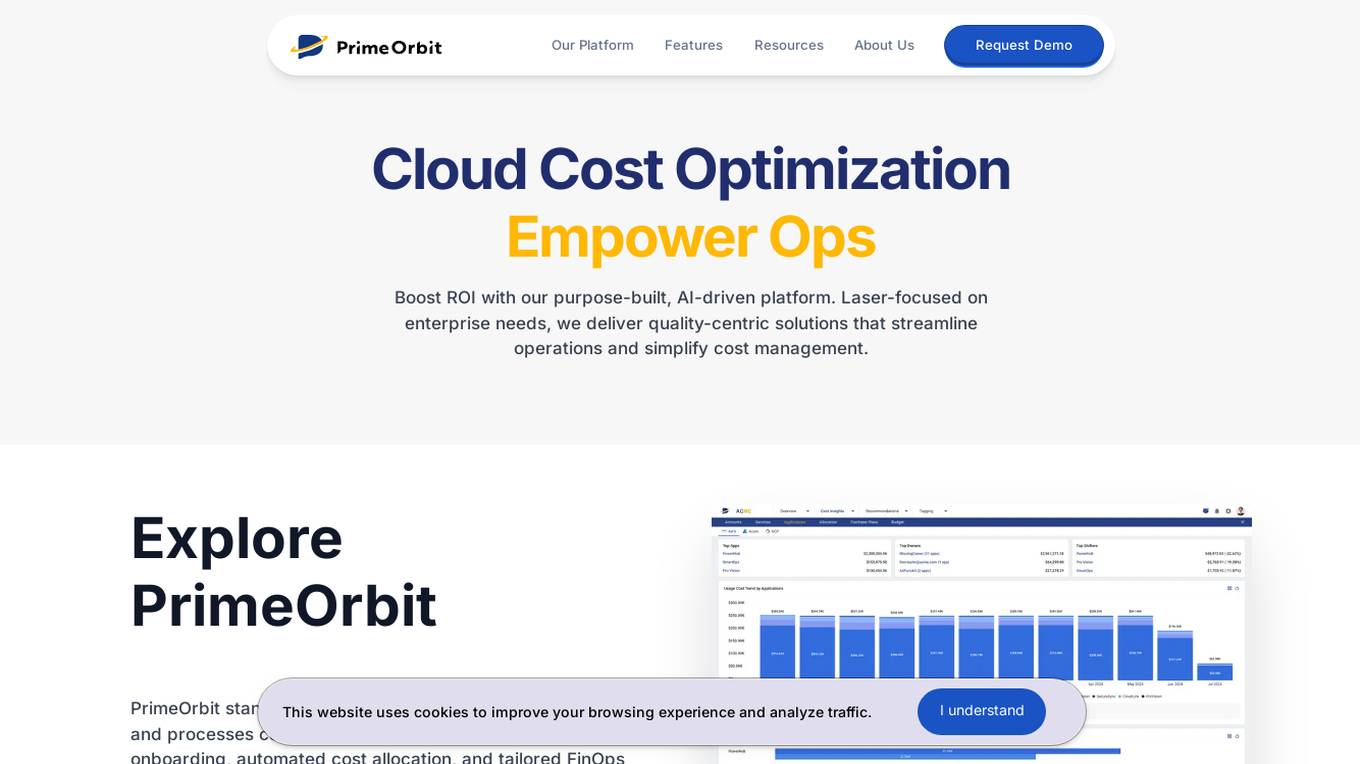
PrimeOrbit
PrimeOrbit is an AI-driven cloud cost optimization platform designed to empower operations and boost ROI for enterprises. The platform focuses on streamlining operations and simplifying cost management by delivering quality-centric solutions. It offers AI-driven optimization recommendations, automated cost allocation, and tailored FinOps for optimal efficiency and control. PrimeOrbit stands out by providing user-centric approach, superior AI recommendations, customization, and flexible enterprise workflow. It supports major cloud providers including AWS, Azure, and GCP, with full support for GCP and Kubernetes coming soon. The platform ensures complete cost allocation across cloud resources, empowering decision-makers to optimize cloud spending efficiently and effectively.
0 - Open Source Tools
10 - OpenAI Gpts
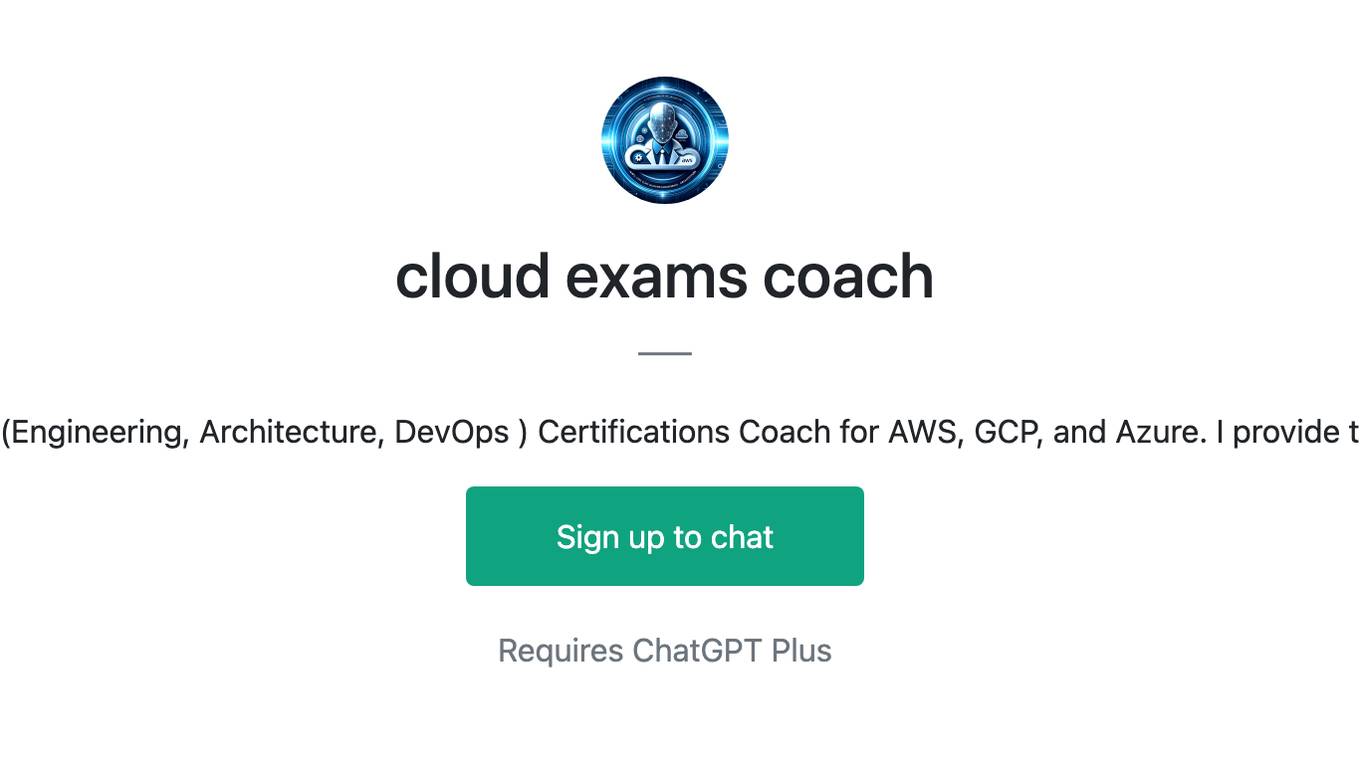
cloud exams coach
AI Cloud Computing (Engineering, Architecture, DevOps ) Certifications Coach for AWS, GCP, and Azure. I provide timed mock exams.
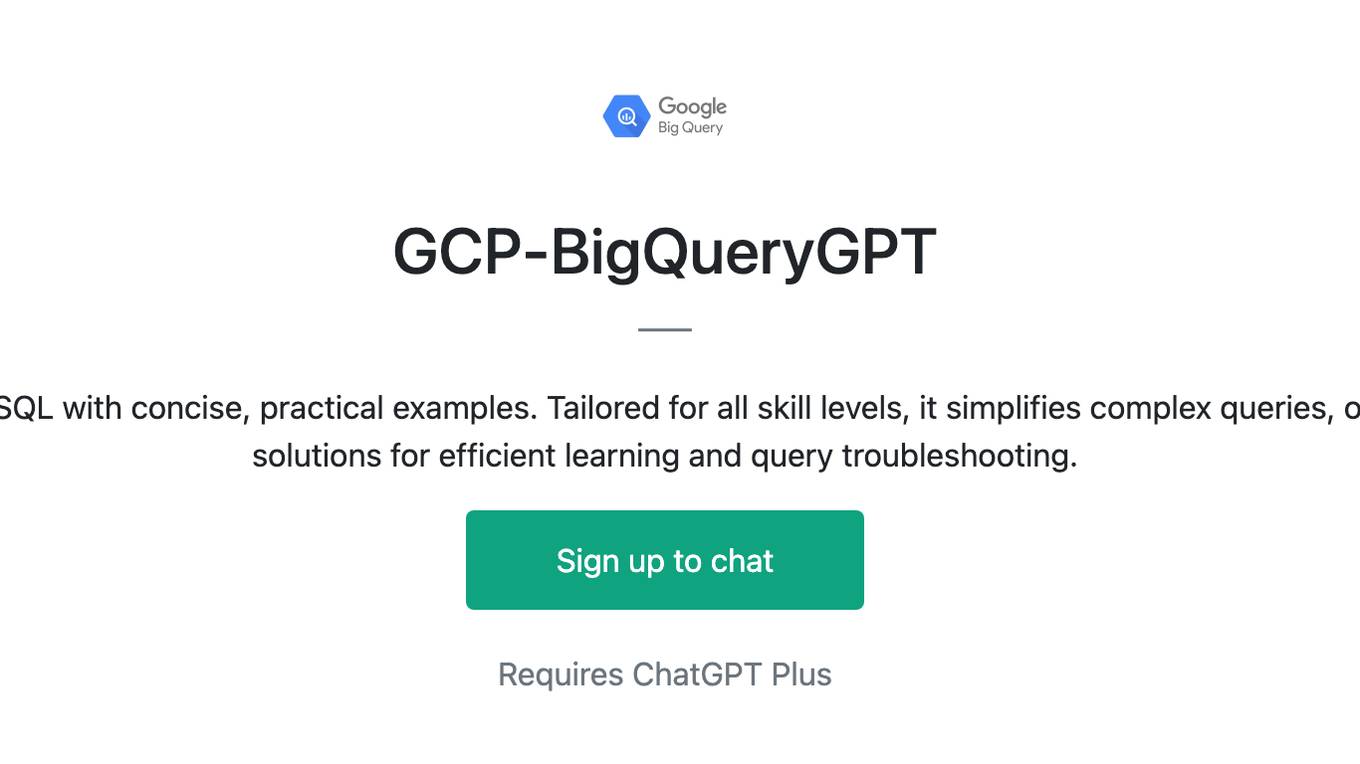
GCP-BigQueryGPT
BigQueryGPT aids in mastering BigQuery SQL with concise, practical examples. Tailored for all skill levels, it simplifies complex queries, offering clear explanations and optimized solutions for efficient learning and query troubleshooting.

Instructor GCP ML
Formador para la certificación de ML Engineer en GCP, con respuestas y explicaciones detalladas.
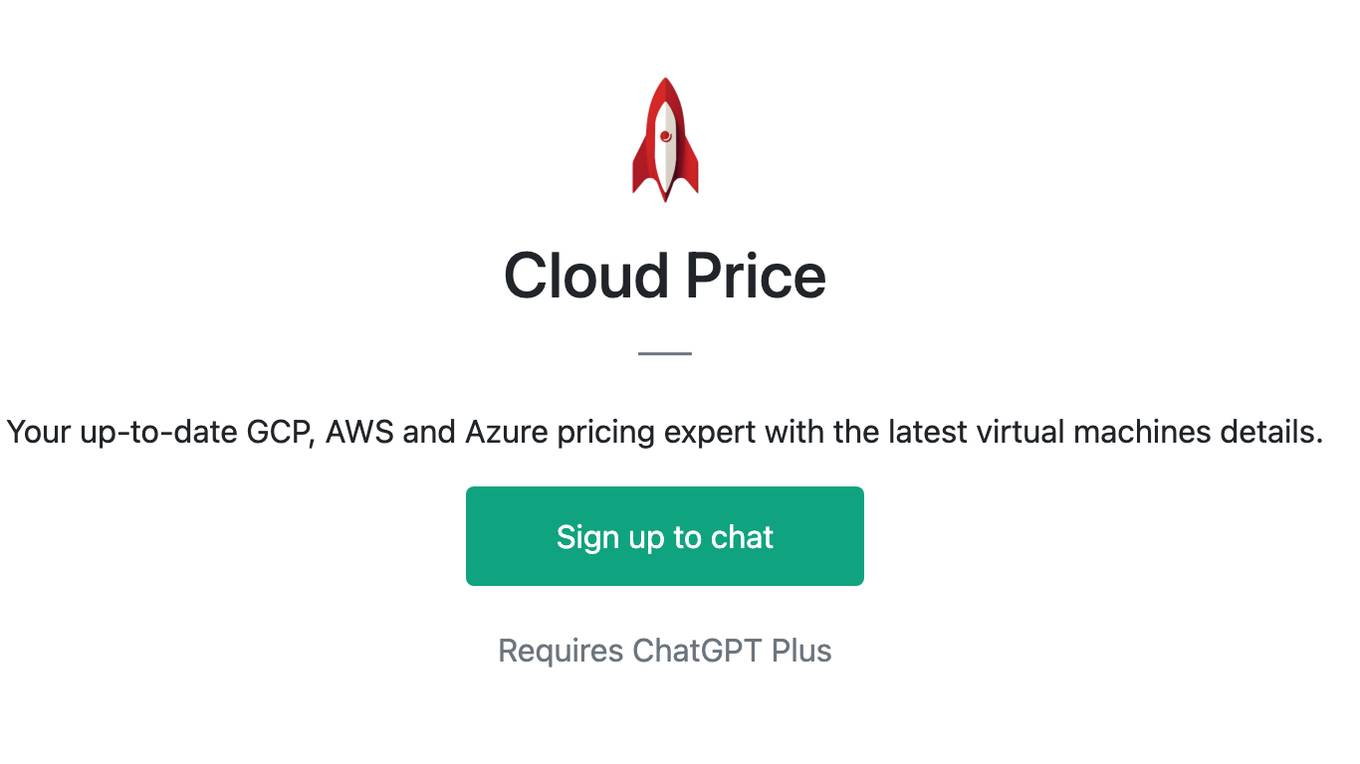
Cloud Price
Your up-to-date GCP, AWS and Azure pricing expert with the latest virtual machines details.
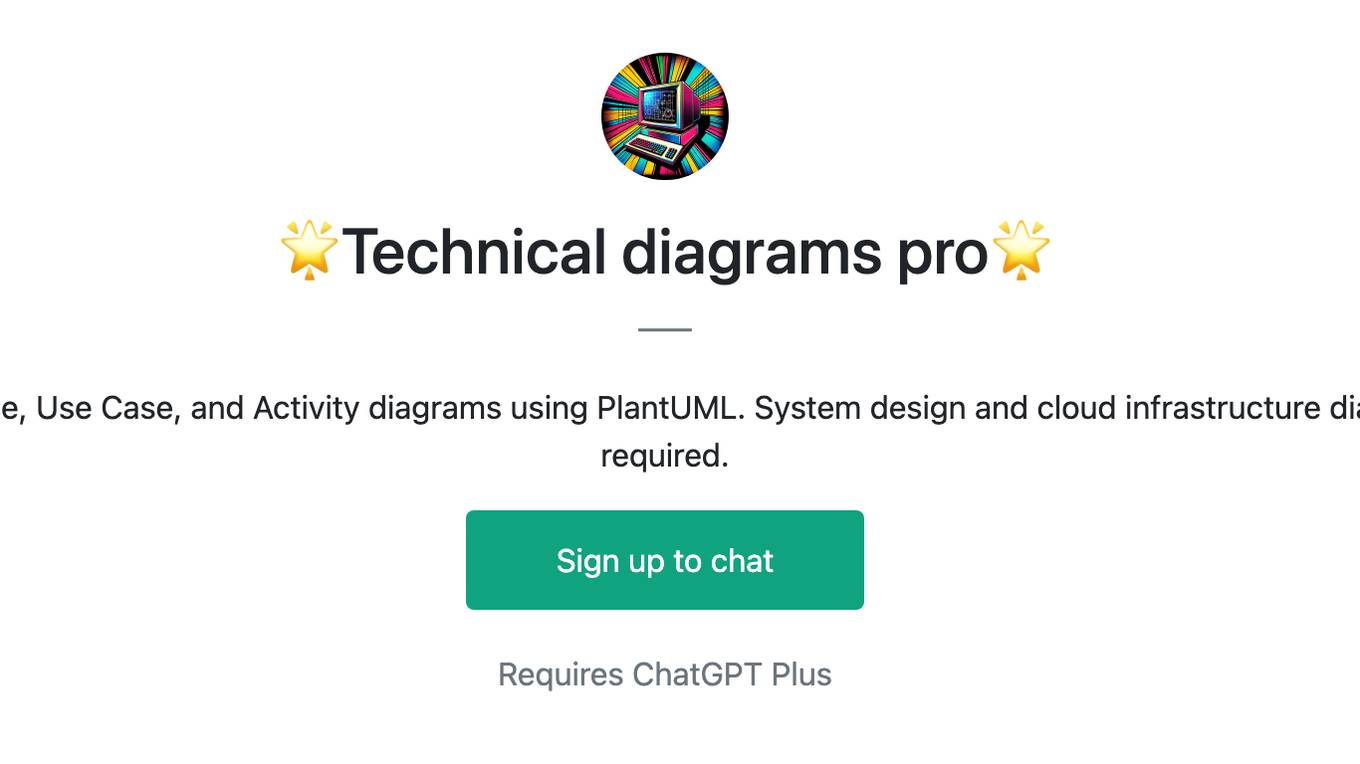
🌟Technical diagrams pro🌟
Create UML for flowcharts, Class, Sequence, Use Case, and Activity diagrams using PlantUML. System design and cloud infrastructure diagrams for AWS, Azue and GCP. No login required.
